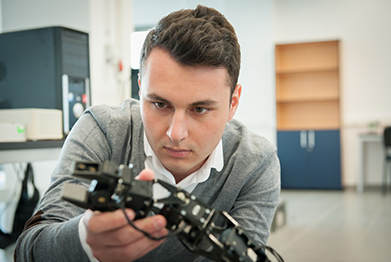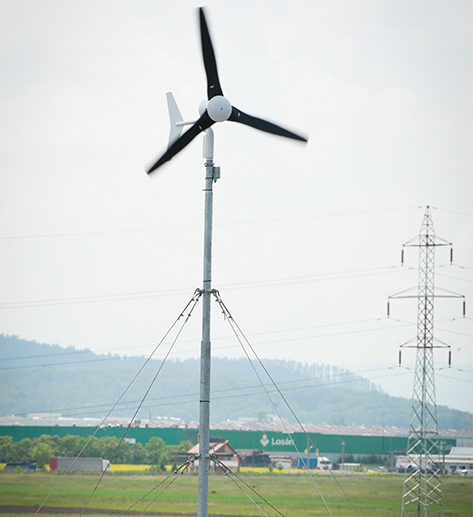Master's degree

The master’s degree field which this study programme belongs to is Mechatronics and Robotics. The duration of studies is 2 years, respectively 4 semesters (120 ECTS credits). Intended as an essential continuation of the bachelor’s degree studies, the master’s programme aims to develop training and research programmes for gaining in-depth knowledge in the transdisciplinary subfields of mechatronic engineering in line with modern technology trends; furthermore, it ensures a synergistic combination between precision mechanics, electronic command and control systems, and computer science, which serves the design, implementation, operation and exploitation of high performance automated systems. In order to achieve the proposed mission and objectives, this study programme is structured into two teaching paths: Advanced Mechatronic Systems and Mechatronic Systems in Medicine and Optometry.
Perspectives after graduation: To work as a mechatronics engineer, expert mechatronics engineer, mechatronics researcher, engineer for automation systems and equipment; clinical engineer; medical bioengineer; optometrist engineer etc.

The master’s degree field which the study programme belongs to is Industrial Engineering and the duration of studies is 2 years (120 ECTS credits). The programme operates under the coordination of the Scientific Research Centre for Renewable Energy Systems and Recycling and it is structured into three study paths that have several common courses in the 1st year, sem. I (Advanced design in engineering, Eco-design, etc.); starting with sem. II, the three study paths mostly have specific courses: